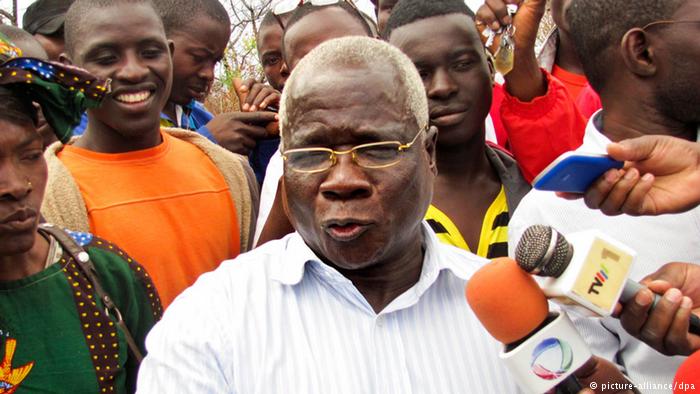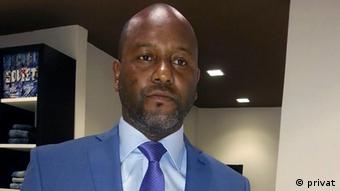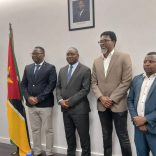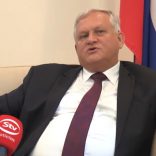Mozambique: Minister meets Venâncio Mondlane's delegation on legalising new party Anamalala
Decentralization by June unrealistic, analyst says

DW (File photo) / Afonso Dhlakama
Within this time-frame, only a specific agreement on the nomination of governors, as a means of satisfying Renamo requirements, can be reached, says governance expert Silvestre Baessa.
Renamo leader Afonso Dhlakama last week expressed his desire to see the decentralization bill submitted and approved by parliament by the end of the first half of this year. DW Africa interviewed Mozambican governance expert Silvestre Baessa to assess the viability of this ambition.
DW Africa: Is Renamo’s goal to complete decentralization by the end of the first half of this year realistic if we consider the complexity of the governance system?
Silvestre Baessa (SB): From the deadline point of view, I think not. It’s a very tight deadline, especially because of the depth and complexity of the issue. I believe that there are two situations that must be considered. One is the possibility of a political agreement that allows Renamo to appoint governors in the provinces where it won and the second is decentralization in the deeper meaning of the word, which will require much more work than has been done so far. On the other hand, I do not believe that Frelimo can take such a decision before its Congress (26.10 to 01.11), which will be the highest meeting of the party this year, and therefore difficult decisions such as negotiations with Renamo and the decentralization package itself and all other reforms, which have very big implications not only for the state, but in the relationship between Frelimo and the Mozambican state, will not be taken before this party meeting. I am not sure about the viability of Renamo’s deadline.

DW Africa: So it is more likely that this package will be finalised before next year’s municipal elections?
SB: Next year we have local elections, and there is a package of reforms that is being demanded by municipalities, namely greater autonomy, greater independence, greater room for political maneuvering, etc., and it would make sense that for this new municipal mandate, which starts after the 2018 elections, a new package should come out. So I think there is an important opportunity to put this decentralization package into effect with the municipal bodies elected at the 2018 elections. But I believe there is an opportunity until the end of next year; the elections take place in October. There is enough time to move forward with some reforms that may not only address Renamo’s concerns, but also the MDM’s and society’s in general, which call for greater management and leadership capacity in local government, especially in central development issues such as the provision of basic services.
DW Africa: President Filipe Nyusi recently announced a new contact team for peace negotiations. Until December, groups of international mediators participated in this process. What dictated the creation of a new group?
SB: I think that the president’s move to invite the ambassadors of countries who give direct support to the State Budget is an attempt to solve, at a stroke, two or three problems at the same time. We have had this whole situation of the [hidden] debts, and this model can be far more effective than the model of the mediators, because here it is not only a political issue but also a content one. Some of these countries have been at the forefront of the discussion of a set of reforms, from public sector reform, decentralization, etc. They have knowledge and experiences that can be useful in forming a decentralization package that better responds to the wishes of the people and Renamo. So this may be one of the smartest steps the president has ever taken in his relationship with the cooperation partners.













Leave a Reply
Be the First to Comment!
You must be logged in to post a comment.
You must be logged in to post a comment.